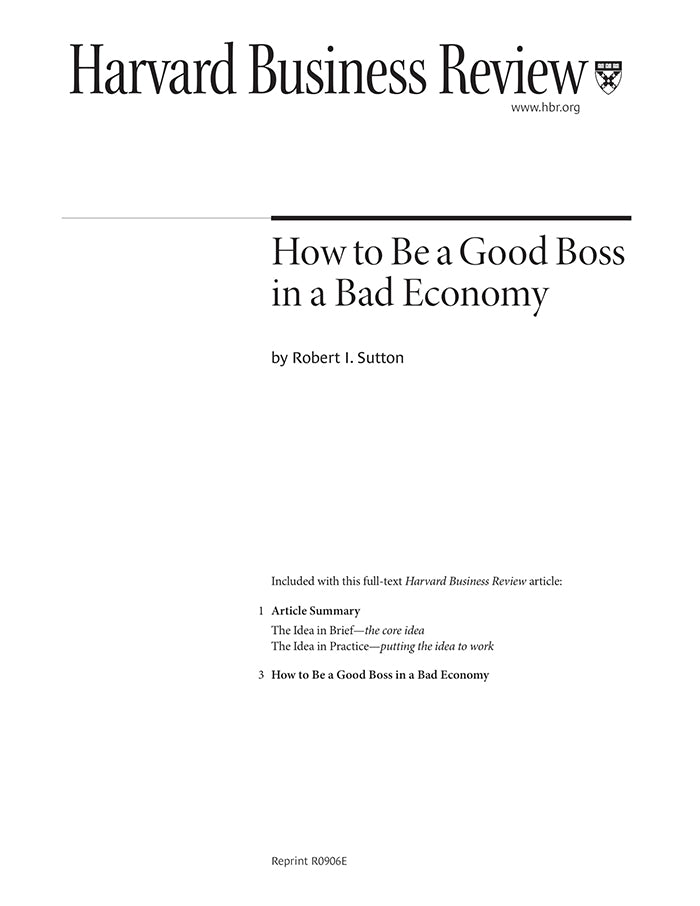How to Be a Good Boss in a Bad Economy
受取状況を読み込めませんでした
Even in times of economic growth, it's challenging to be a good boss. Research shows that people placed in positions of authority often become less mindful of others' feelings and needs. Meanwhile, those in subordinate roles devote immense energy to watching and interpreting the actions of leaders. These tendencies make for a toxic tandem, which is only exacerbated during a crisis. Sutton, a Stanford professor, provides a useful framework to get bosses focused on what their people need from them most. In a situation where people feel threatened, a good boss finds ways to provide more predictability, understanding, control, and compassion. Predictability. Give people as much information as you can about what will happen to them and when. Preparation will reduce their suffering, and they can relax in the meantime - as Londoners during the blitz were able to do when the air-raid sirens were silent. Understanding. Accompany any major change with an explanation of why it's necessary and how it will affect routines. Internal communication should be simple, concrete, and repetitive. Control. Don't frame an obstacle as too big, too complex, or too difficult to overcome; people will be overwhelmed and freeze in their tracks. When it's broken down into less-daunting components, they can tackle it with confidence. Compassion. Tend to the emotional needs of people who are let go, and help them preserve their dignity. This is essential both for them and for their colleagues who survive the cuts. Demeaning those who have left will demoralize those who remain and may drive the best of them to jump ship. A manager who provides all four remedies will be perceived as "having people's backs" and will reap the rewards of employees' deep loyalty for years to come.
【書誌情報】
ページ数:16ページ
サイズ:A4
商品番号:HBSP-R0906E
発行日:2009/6/1
登録日:2012/3/28


